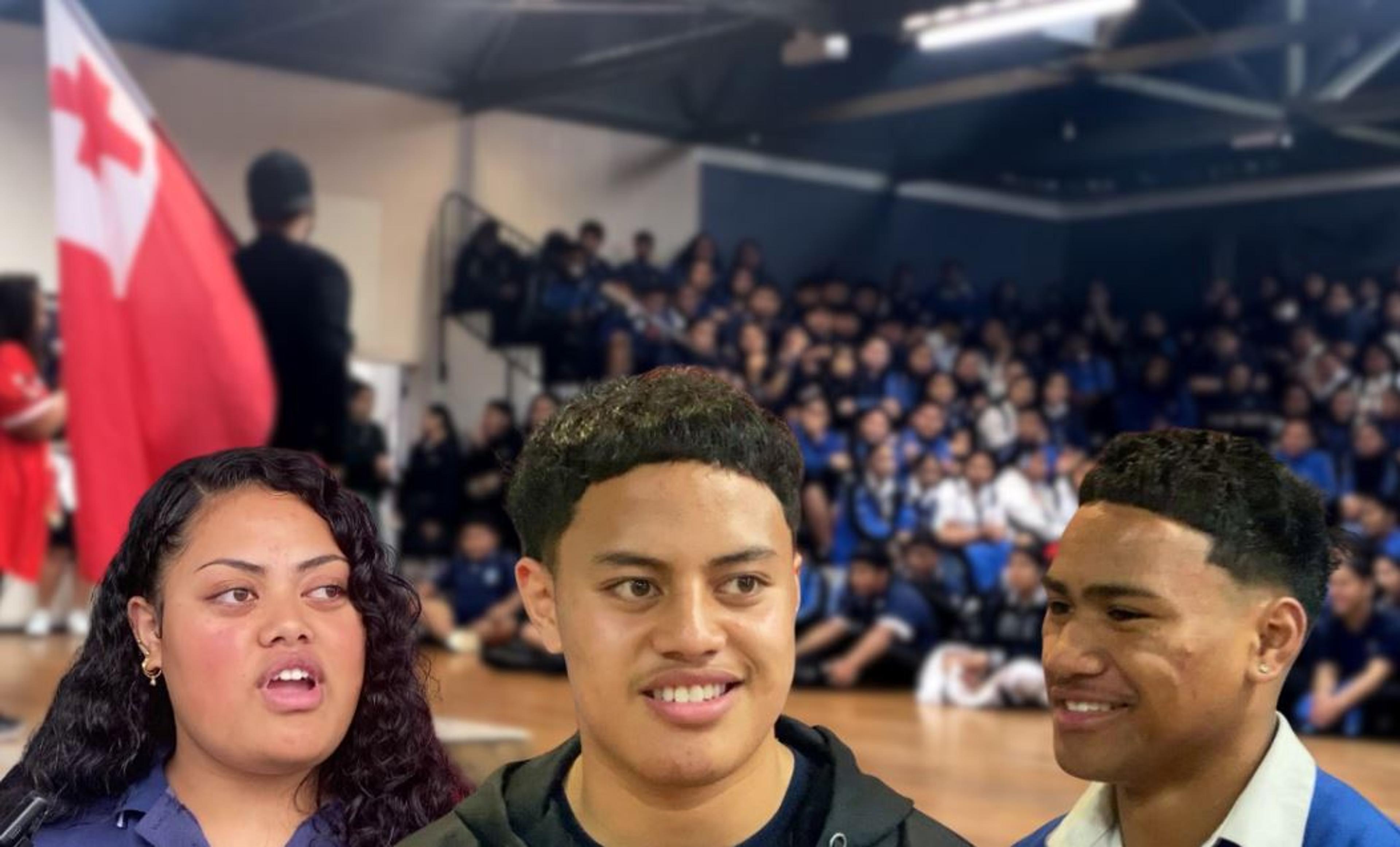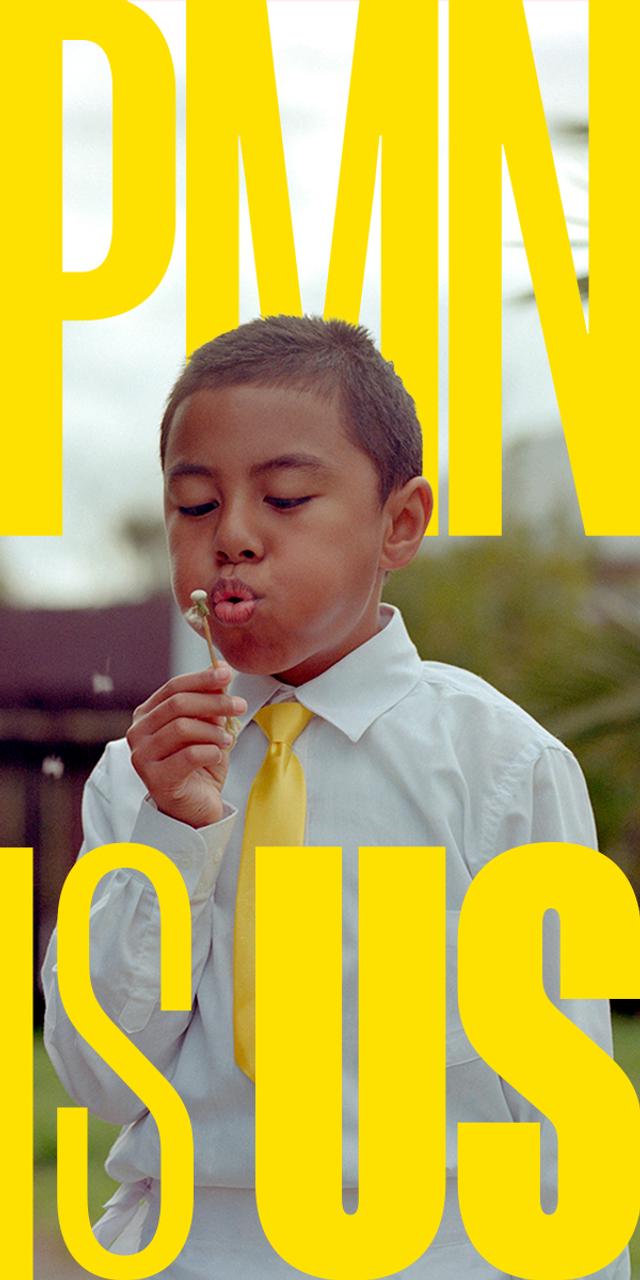

17-year-old Tangaroa College student Kelepi ‘Uluakiafua Tu’akalau (centre) says Wednesdays were the only days English could be spoken at home. Photo/PMN News/Vaimaila Leatinu'u
Photo/PMN News/Vaimaila Leatinu'u
Tangaroa College concert celebrates Tongan Language Week
The concert featured well known musicians including Irene Folau and Folau Atuekaho.
For 17-year-old Kelepi ‘Uluakiafua Tu’akalau, growing up in Auckland, Wednesdays were the only days English could be spoken at home.
Tangaroa College student Tu’akalau told Pacific Media Network “that rule didn’t only apply to us but to whoever came over to our house, even non-Tongan speakers.
“We’d always just go into the room and whisper.”
To celebrate Tongan Language Week, Tangaroa College held a lunchtime concert on Thursday.
The event was a collaboration between the school and PMN, and featured well known musicians including Irene Folau and Folau Atuekaho.
At first, Tu’akalau didn’t like the Wednesday rule. But now, he is grateful, and uses the language outside of home.
Tu’akalau was born in New Zealand, and is from the village of Malapo in Tongatapu.
“I speak Tongan to non-Tongans here [Tangaroa College] and they’re slowly picking it up.”
This year’s Tongan Language Week theme is “e tu’uloa ‘a e lea faka-Tonga ‘o ka lea’aki ‘i api, siasi (lotu), mo e nofo-’a-kainga” meaning “the Tongan language will be sustainable if used at home, church and the wider community”.
Only 40 percent of 82,000 Tongans living in New Zealand speak the language, according to Statistics NZ.
Tu’akalau mixes his language into sport.
“I secretly speak it [Tongan] so that other players don’t know our next move.”
When incorporating his culture with his everyday life, Tu’akalau refers to the Tongan saying “koe tenga koe oku teke tō, koe tenga ia teke utu'' meaning “whatever seed you plant is what you harvest” - a saying he learnt from his mother.
Tu’akalau has spent time in Tonga working at a plantation with his uncles, harvesting yams, cassava and taro.
“It was hard work, especially the ufi (yam) because you have to go deep down [into the soil] and you can’t pull it out from the top because it’s too heavy and it [yam] might snap.”
Tu’akalau is grateful for the experience and hopes other young Tongans can go back to Tonga to learn and understand their challenges and bring that understanding back to New Zealand.
Tangaroa College teacher Mafi Tufunga Tavo is a proud Tongan, from the villages of Matahau and Kanokupolu.
Raised by his grandmother, Tavo says “with her she was always pushing us to learn more about our culture, when we’d come home from school, we could only speak Tongan”.
However, Tavo says he’s grateful for his upbringing as he can now speak the language and has learned more about his Tongan culture.
Now a father, Tavo says he’s made sure to pass his cultural knowledge to his children who are also half Cook Island.
Tavo credits his Tongan culture for inspiring him to become a teacher.
“If it wasn’t for my culture, my family, the giants that I have been able to stand on to be able to do what I do, I wouldn’t be here today.”
Tavo encourages others to give the Tongan language a go.
“A lot of our kids shy away from trying to speak our language because people laugh at them but don’t be afraid to fail, that’s my message.”
Written by 'Alakihihifo Vailala, Te Rito Journalism Cadet




